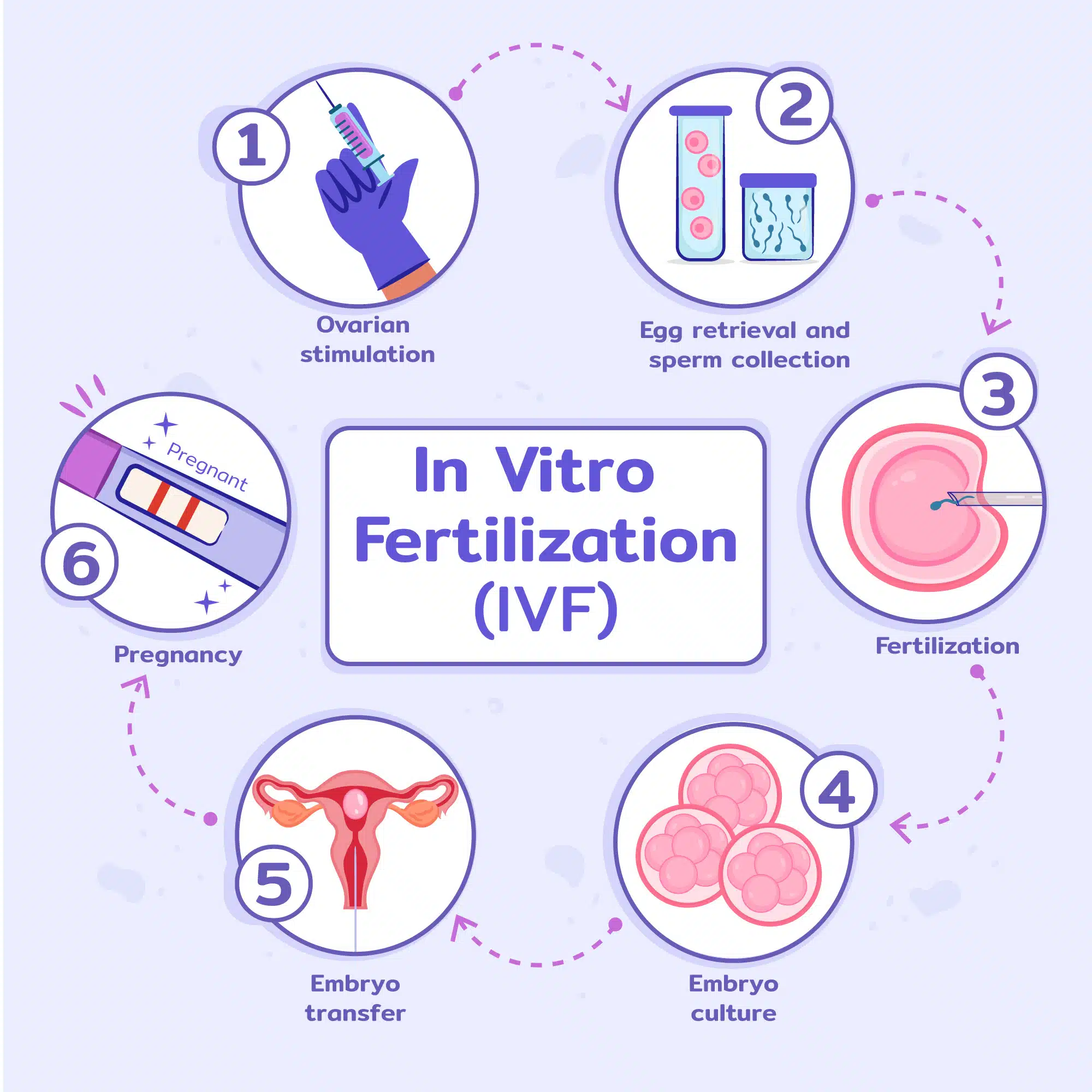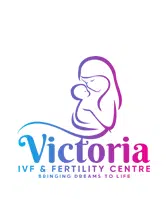Victoria IVF – Advance IVF Centre Nairobi
Victoria is a leading IVF centre in Nairobi, Kenya. At Victoria, we understand that infertility can be a difficult and emotional journey. That’s why we provide personalized care to each of our patients. Our team of fertility specialists and embryologists are some of the best in the field, and we use the latest technology and techniques to ensure the best possible outcomes for our patients. Victoria Fertility Clinic in Nairobi, Kenya is recognized as a beacon of hope and a trusted destination for couples embarking on their journey to parenthood. Our renowned IVF specialists and IVF experts, led by the best IVF doctor, esteemed Dr. Ruchik Savraiya, offer unparalleled expertise and personalized IVF treatment, creating plans tailored to your unique needs. Visit IVF Centre Nairobi, Kenya located at A-8th floor, Doctors Park, 3rd Parklands, Nairobi, Kenya which is equipped with state-of-the-art facilities, cutting-edge technology, and advanced laboratories.
What is IVF (In Vitro Fertilization)?
IVF is a process in which a woman’s eggs are removed and fertilized with a man’s sperm in a laboratory. Afterwards, the fertilized eggs are implanted into the female uterus to achieve pregnancy. Modern-day couples are struggling a lot with infertility issues. Wanting to become parents and failing multiple times does not just hurt emotionally but financially as well. Thankfully, modern-day medical science has a solution to such infertility problems called IVF or in vitro fertilisation. It’s one of the more widely known types of assisted reproductive technology (ART) which is done at IVF Centre and works by using a combination of medicines and surgical procedures. In Vitro Fertilisation (IVF) is a complicated process that helps couples overcome infertility issues and become parents. Mature eggs are removed from the ovaries during the procedure in the IVF Centre, and the partner’s sperm is then added to the eggs in a lab outside of the uterus. The resultant embryo is then placed into the uterus. Extra embryos might be saved for later use if there are any.
Main Causes of Infertility
Ovulation issues are a common cause of infertility. Certain issues prevent the release of an egg entirely, while others only restrict the release of an egg during a particular cycle. Common causes of infertility are:
- Ovulation disorders
- Problems in the uterus
- Blocked or damaged Fallopian tube
- Endometriosis
- Primary ovarian insufficiency
- Pelvic adhesions
- Abnormal sperm function
- Testicles
- Certain Cancers and their treatments
IVF Procedure At Victoria IVF Centre Nairobi, Kenya

- Ovulation
There are different stages in the IVF procedure and fertility medications are given to you in the first stage to increase your egg production. Several eggs are needed for the process since not all of the eggs that are removed from your ovaries will develop or get fertilised. Your hormone levels are tracked with blood tests, and your ovaries are examined with a transvaginal ultrasound. - Collection of Eggs
Another name for the process is “follicular aspiration.” During this brief procedure, your doctor will use ultrasound imaging to insert a thin needle into your vagina to remove your eggs from the follicles. You might be given medicine before the treatment to help you feel comfortable. You can have some cramping after the surgery, but they normally go away in a day or two. - Retrieving the Sperm
A sample of sperm is produced by the male partner and is ready to fuse with the eggs. - Insemination
In this procedure, the eggs and sperm are collected and then combined in an “in vitro” lab dish in the IVF Centre for in vitro fertilisation. Regular monitoring is done on the eggs to make sure that fertilisation or cell division is occurring. - Embryo Implantation
Typically, embryo transfer takes place a few days in the IVF Centre following egg retrieval. During the transfer, the doctor will implant a catheter which is a tube that goes through your vagina and into your uterus. A syringe with one or more embryos suspended in a small amount of fluid is attached to the end of the catheter. As part of the IVF procedure, the doctor inserts one or more embryos into your uterus using a syringe.
After IVF Procedure
While most women can return to their regular activities the next day, some might be recommended to rest for the whole day at the IVF Centre following the embryo transfer. Women undergoing IVF therapy may need to take progesterone injections or pills daily for 7 to 9 weeks following the embryo transfer. This hormone promotes the growth of the embryo after implant and helps the uterine lining become ready for the embryo to attach. To prevent miscarriage, progesterone is usually given for 8 to 12 weeks following pregnancy. A pregnancy test will be performed at our fertility clinic in Nairobi to determine whether there is a pregnancy 12 to 14 days following the embryo transfer. Get in touch with the best IVF Centre in Nairobi for infertility treatments.
Precautions Following an IVF Procedure
Some of the general precautions which you must take following an IVF procedure are:
- It’s advisable to avoid physically demanding activities, heavy lifting, and other tasks that include or may involve abrupt actions.
- When using any prescription medication, make sure you follow your doctor’s directions to maximise your chances of becoming pregnant.
- Don’t smoke, consume alcohol, or be around X-rays.
- Please see your doctor before taking any medications.
Why Choose Victoria IVF Centre For IVF Treatment?
Victoria is one of the advanced IVF Centre in Nairobi, Kenya. Our IVF Centre is dedicated to helping couples who are infertile become parents. Our fertility clinic is a daily destination for infertile couples from all across the nation due to our high success rates and experienced a team of fertility doctors. At our IVF Centre in Nairobi, we offer the best treatment for different infertility issues that a couple encounters along their emotionally draining and exhausting path towards infertility. Our IVF treatment cost is extremely affordable with a higher success rate that makes us different from others. With a patient-centred approach, we provide compassionate and supportive care, ensuring your comfort and well-being throughout the process. This is what makes us the best IVF Centre in Nairobi, Kenya.
How Much Does IVF Cost In Nairobi, Kenya?
Total IVF Cost in Nairobi, Kenya is between 500K to 600K KSh depending on the clinic’s success rate, the experience level of the doctor, and the location of the fertility clinic. Other major factors that can impact the cost of IVF treatment are:
- Specialist consultation
- Lab tests
- Medication
- Anaesthesia
- Cost of embryo storage
- Preimplantation genetic screening and diagnosis (PGS and PGD)
- Your health insurance cover
- Non-medical expenses, like travel to and from your clinic to residence.
FAQs
- What factors influence the success of in vitro fertilisation (IVF)?
Age, prior pregnancy, type of infertility issues, use of donor eggs, lifestyle choices, level of skill of the embryologist, type of procedure used for IVF treatment, facilities of the fertility clinic’s embryology lab, level of expertise of the fertility consultant, and so on are some of the factors that influence the success of IVF treatments
- Is in vitro fertilisation (IVF) the right option for us?
IVF is the right option for women whose fallopian tubes are damaged or clogged, those with strange fertility issues or those who have tried and failed with other treatments. Also, Men with abnormally shaped or moving sperm, or those with low sperm counts can go for the procedure.
- How long does the in vitro fertilisation process take from start to finish?
Fresh embryo transfer takes about four weeks. If patient is going for frozen embryo transfer than it can take time about 12-13 weeks.
- Where is your IVF Centre is located?
Our IVF Centre is located at A-8th floor, Doctors Park, 3rd Parklands, Nairobi, PO. Box 131.

